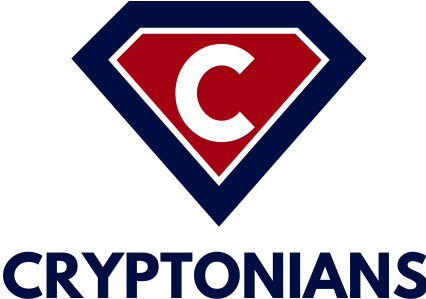Will NFTs Continue to Have Cultural and Historical Value?

The cultural and historical significance of NFTs can lead to higher prices due to their importance and relevance.
NFTs can be used to commemorate important events and capture the essence of a moment. Even a popular crypto casino can mint their NFTs for frequent players to increase their loyalty.
Memorable Moments
Memorable moments, such as iconic tweets or significant events, can be immortalized as NFTs and hold value. These NFTs serve as digital mementos that capture the essence of the moment, providing collectors with a piece of history and a sense of ownership over the event.
As the demand for these unique NFTs increases, it makes NFTs valuable and turns them into an attractive investment opportunity.
Iconic Personalities
Iconic personalities, like celebrities or influential figures, can also contribute to the value of NFTs. These individuals have a significant impact on society and culture, and their association with an NFT can augment the demand for the asset, as well as confer a feeling of authenticity and trustworthiness.
NFTs featuring iconic personalities can also hold cultural and historical importance, further increasing their value and appeal to collectors.
Challenges and Controversies
In spite of the potential benefits and opportunities that NFTs present, they are not without their challenges and controversies, notably their environmental impact and legal issues.
These concerns need to be addressed for the NFT market to grow sustainably and to ensure the long-term viability of NFTs as a legitimate form of digital ownership.
Carbon Footprint
The carbon footprint of NFTs, particularly those on the Ethereum blockchain, has raised concerns about their sustainability. The energy consumption required to create and store NFTs contributes to their carbon footprint. Here are some key points to consider:
- An average NFT generates approximately 211kg of carbon dioxide (CO2) over its lifespan.
- The high energy consumption of blockchain networks, such as Ethereum, is a major contributor to the carbon footprint of NFTs.
- The environmental impact of NFTs has led to discussions about the need for more sustainable alternatives and solutions.
This environmental impact has sparked discussions on the need for more sustainable solutions in the NFT space.
Legal and Regulatory Issues
Legal and regulatory issues, such as copyright and intellectual property rights, can also impact the NFT market. Ensuring that creators are adequately compensated for their work and that their rights are protected is crucial for the continued growth and success of the NFT market. Do remember that even if you mint or receive an NFT from a casino, you should always make your gaming process secure.
As the market evolves, addressing these legal and regulatory challenges will be essential to maintain trust and confidence in the NFT ecosystem.
Investing in NFTs: Risks and Rewards
Investing in NFTs brings with it a mix of risks and rewards, which include market volatility and the challenge of value assessment. As the NFT market expands and evolves, grasping the factors that contribute to the value of NFTs and the potential risks can assist investors in making informed decisions and navigating the dynamic landscape of digital assets.
Market Volatility
The NFT market can be volatile, with prices fluctuating based on demand and hype. As with any investment, understanding the factors that drive market volatility and being prepared for potential price fluctuations is essential for managing risk and making informed decisions.
By staying informed about market trends and developments, investors can better navigate the ups and downs of the NFT market.
Assessing Value
Assessing the value of NFTs can be difficult, as it depends on factors like scarcity, creator reputation, and cultural significance. As the NFT market matures and more information becomes available, investors will be better equipped to evaluate the value of NFTs and make informed decisions.
By understanding the various factors that contribute to the value of an NFT, investors can better navigate the market and make informed choices about their investments.
Summary
In conclusion, NFTs represent a new frontier in digital art and assets, offering unique opportunities for creators, collectors, and investors alike. By understanding the factors that contribute to the value of NFTs, such as scarcity, creator reputation, utility, and cultural significance, as well as addressing challenges and controversies, we can embrace the potential of this emerging market and shape the future of digital ownership. As the NFT market continues to evolve, it’s essential for all stakeholders to stay informed and adapt to the ever-changing landscape, unlocking new possibilities and opportunities in the world of digital assets.
Frequently Asked Questions
Why would anyone buy an NFT?
People buy NFTs for investment and pleasure, either to flip them or as a long-term asset.
What is the main purpose of NFTs?
NFTs are a way to verify digital asset ownership and authenticate digital assets. By allowing creators to tokenize real-world tangible items such as artwork, collectibles, and real estate, NFTs open up new avenues for investors, creators, and collectors to trade and interact with digital assets.
What makes an NFT rare?
NFTs become rare when they possess a combination of uncommon traits and have few copies available on the blockchain. Rarity scores are determined by the number of traits and how rare each trait is, making them more valuable if they are rarer. Thus, rarity is a key element for determining an NFT’s uniqueness and value.
Do NFTs have real-world value?
NFTs have real-world value, as they can be traded and exchanged for money, cryptocurrencies, or other NFTs based on the value placed on them by the market and owners. They also provide a means of connecting the physical and online space, representing ownership of a real-world asset, and introducing true ownership of digital assets in the world of video games.
What are Non-Fungible Tokens (NFTs)?
Non-fungible tokens (NFTs) are digital assets with unique ownership properties, enabling creators to monetize their content and collectors to own digital art and assets. NFTs are a new way to create, own, and trade digital assets, and they are revolutionizing the way we think about digital ownership. They are also providing new opportunities for creators to monetize their work and for collectors to own digital art and assets.

